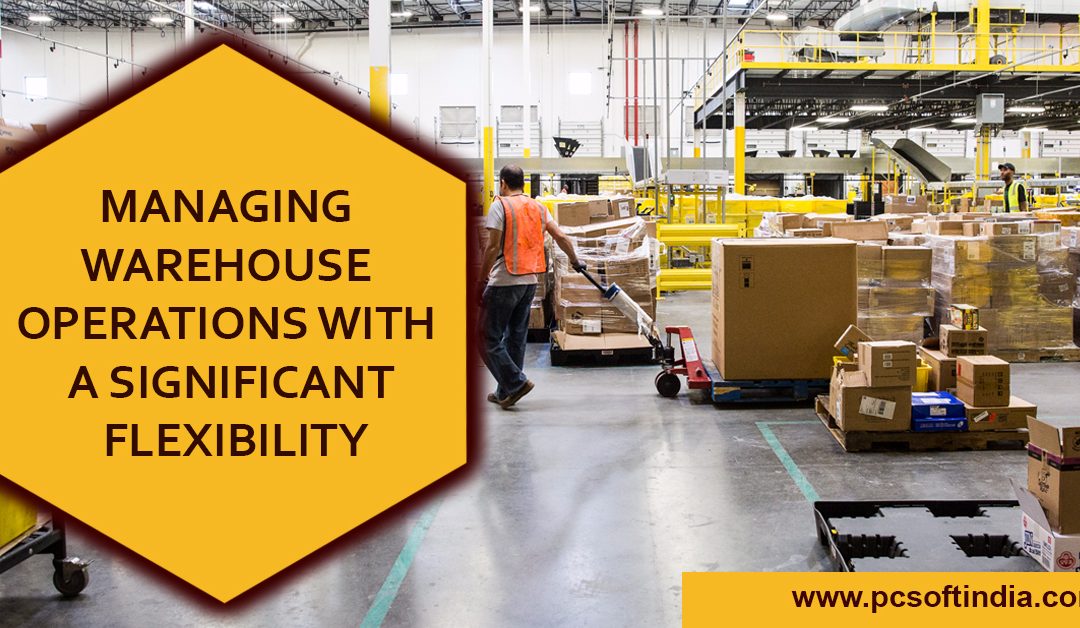About Warehouse and Warehouse Management System:
A warehouse is a commercial place used for the storage of the manufactured goods whereas, warehouse management system (WMS) is a software that enables organizations to handle and supervise warehouse processes. When a manufacturing firm deals with the supply chain processes, erp for warehouse records effective management of the raw materials to satisfy the changing customer demands.
Efficient WMS software does this by allowing users to access a centralized system where various warehouse management activities are managed. The device can be mobile or a tablet working in the warehouse or a desktop computer in the workplace. This makes an operative warehouse efficient and stress-free, and also notifies in case of errors in various warehouse operations. Most importantly, a perfect warehouse management system helps in managing the customer requirements. This is done by deep understanding of the demand and supply of products and in what quantities. The software includes multiple processes that are essential during delivery, receiving, or even storing away materials and incorporation with other systems in the supply chain to determine data transparency in the entire process and organization.
The functionality of a Warehouse Management System:
- Faster Inventory Turns:
The effective warehouse management software can help decrease lead times by controlling inventory movement and improving the dependency of the inventory records, and ultimately support the current market conditions. Therefore, the need for a safety inventory will be reduced, which enhances the entire inventory turnover and also the organizational objective.
- Right Consumption of Warehouse Space:
A Warehouse Management System not just curtails the safety inventory requirements but also periodically develops free warehouse space by thoroughly and correctly locating the products according to receiving, packaging, and dispatching areas. This advanced technology can certainly increase productivity and diminish the inventory that holds larger expenses.
- Reduction of Inventory Paperwork:
The execution of instantaneous warehouse management system can significantly decrease the paperwork that is usually associated with warehouse operations. This ensures promptness and perfect inventory flow and information. All the data that is customarily maintained in the form of hard copies like tickets, packaging lists, etc. can now be maintained digitally with the help of warehouse management system.
- Superior Cycle Counting:
Business can utilize a warehouse management system to note down significant data like particular locations, periodic transportation of products, etc. so that the scheduling will be done effectively and further organizations will be managed with ease. This process not only increases the correctness of the inventory records for upcoming strategic processes but also can greatly eliminate or reduce the need for costly manual inventories.
- Enhanced Customer Service:
By improving the processes straight from product order to dispatch, companies can more efficiently and precisely detect the stock availability and accurate delivery dates. Additionally, it can mechanically identify and disclose about any back-ordered inventory stock.
- Improved Labor Efficiency:
The warehouse management software helps to improve the material flow by combining various inventory picks into one by “Cross-docking” that simplifies the shipment process. This also reduces stock returns due to which shipment accuracy is maintained.
With so many functionalities of a warehouse management system in a manufacturing business, one has to choose the right software for higher levels of success. In short, by identifying organizational needs and focusing on the objectives you will choose the right system for your warehouse operations. However, understanding the functionalities and features can also help you select the right one.



